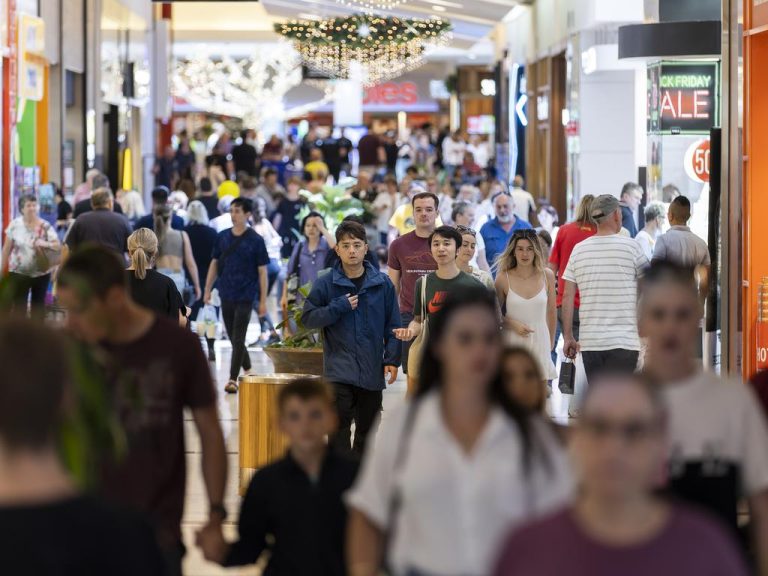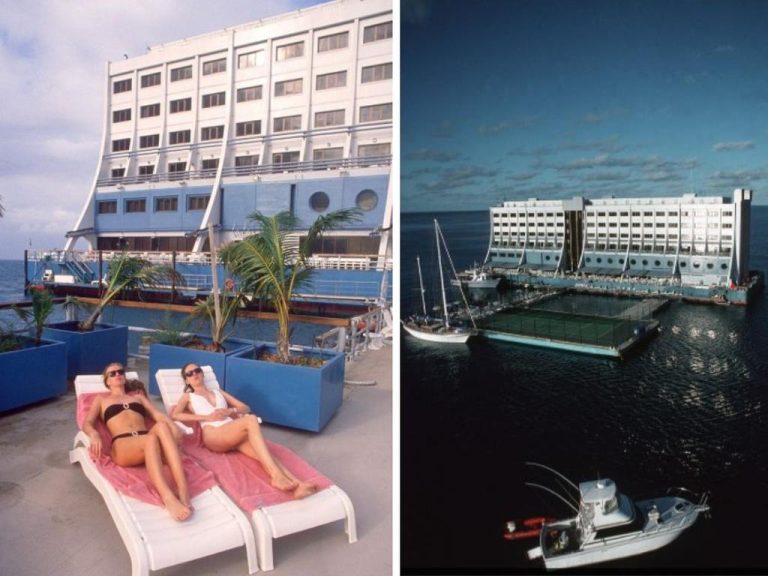Office revival puts Dexus back in black
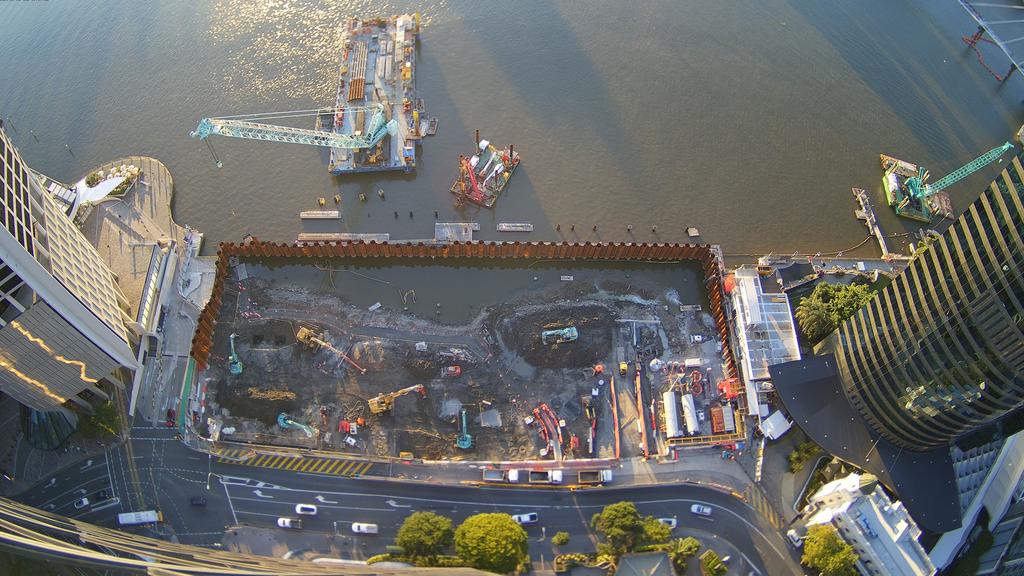
Aerial shot of the works underway at Waterfront Brisbane. Picture: Supplied
Heavyweight landlord and funds manager Dexus is bullish about the prospects of city office markets as interest rates head downwards and workers get back to their desks.
The trust, which is also pushing deeper into infrastructure markets, flagged that demand for space was picking up, though parts of the Melbourne market are still suffering.
Dexus chief executive Ross Du Vernet called out the importance of interest rate cuts in boosting confidence among investors.
“We’re at a pivotal moment in the real estate market as interest rates shift and the conditions for an office market recovery are emerging,” he said.
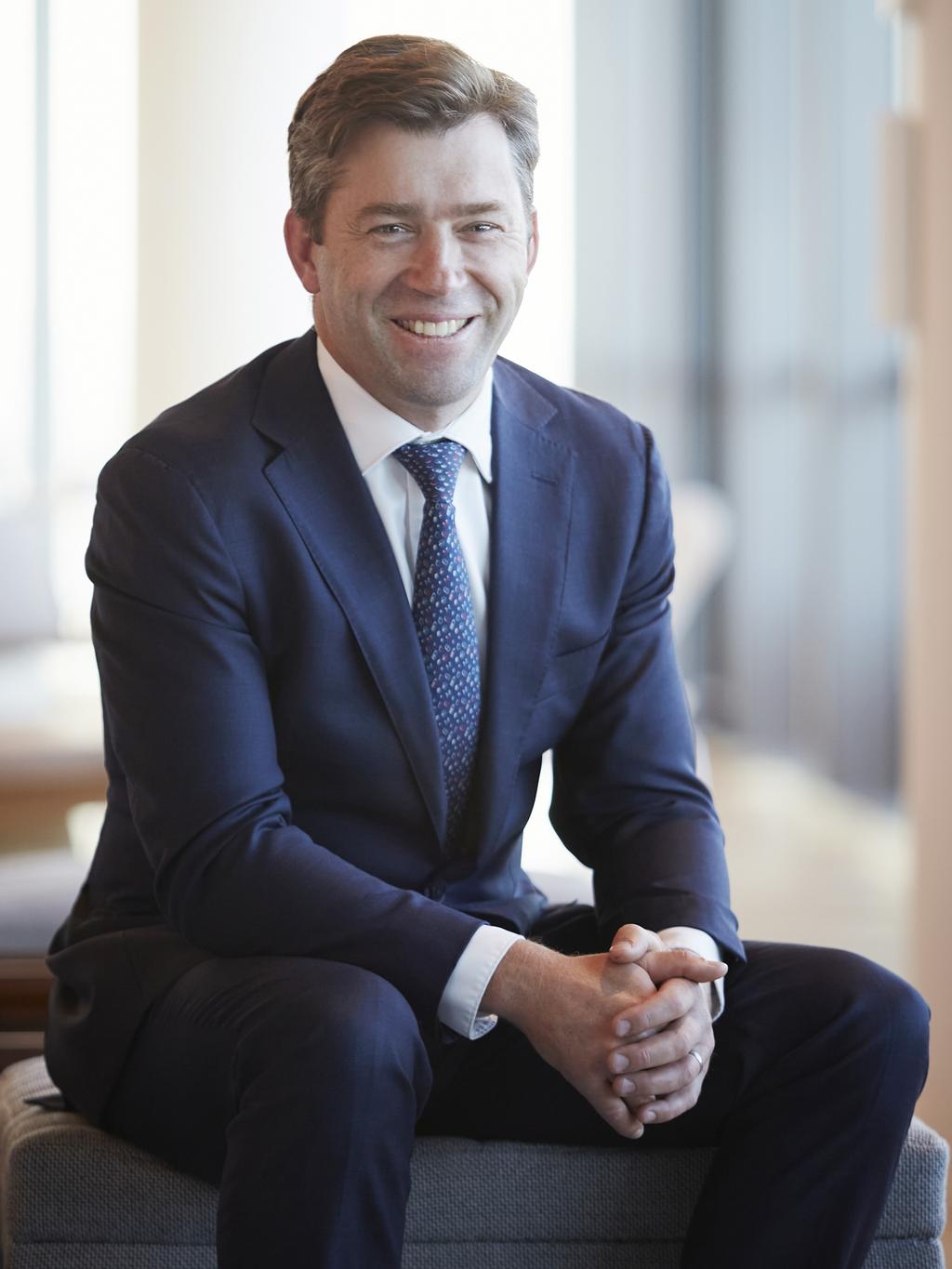
Dexus CEO Ross Du Vernet.
The trust flagged that rising capitalisation rates and higher construction costs had seen the economic rents required to justify new towers increase substantially, and it expects a fall off in the supply of new towers.
But it is still pressing ahead with its $2.5bn Waterfront Brisbane project, where it said that delays in getting out of the ground were not material and there was time to make them up across its planned building schedule.
Mr Du Vernet said that it was the most difficult part of the program and there might be a few weeks of slippage but there were no material cost issues, partly as it was working with to builder John Holland.
Dexus expects that with fewer new office towers across the country, existing buildings will start to perform better, with the Sydney CBD seeing the largest year of net space absorption since 2016.
The office landlord and funds manager rode the tide of improving conditions for building owners, turning around to report a $10.3m profit. The result was well ahead of the first half last year, when it lost $597.2m on the back of heavy write downs.
Office values were down 2.6 per cent and industrial valuations were up 1.4 per cent. After a long fall – the trust’s office values are down 28 per cent down since peaking in fiscal 2022 – values appear to be stabilising.
Dexus has also cleaned up its portfolio and has sold $7.3bn of stock over the last five years, and it held on to prime offices that it sees as outperforming.
Dexus says it is now seeing a flight to both high-quality property and core locations as tenants seek out central offices with top facilities. But it warned there was a shift away from lower-grade buildings and areas.
The company said that it was also progressing on the building of a new Atlassian headquarters in Sydney and if rates were cut a partial sale would be on the agenda for the second half of the year.
Mr Du Vernet said the trust had contracted over $515m of balance sheet sales since the fiscal 2024 result, and raised further external capital. It has closed smaller funds and is now reviewing opportunities to launch new products, drawing on its skills in real assets, including in infrastructure.
“We are actively assessing infrastructure opportunities and remain focused on modernising and stabilising funds to position the platform for when the cycle turns,” he said.
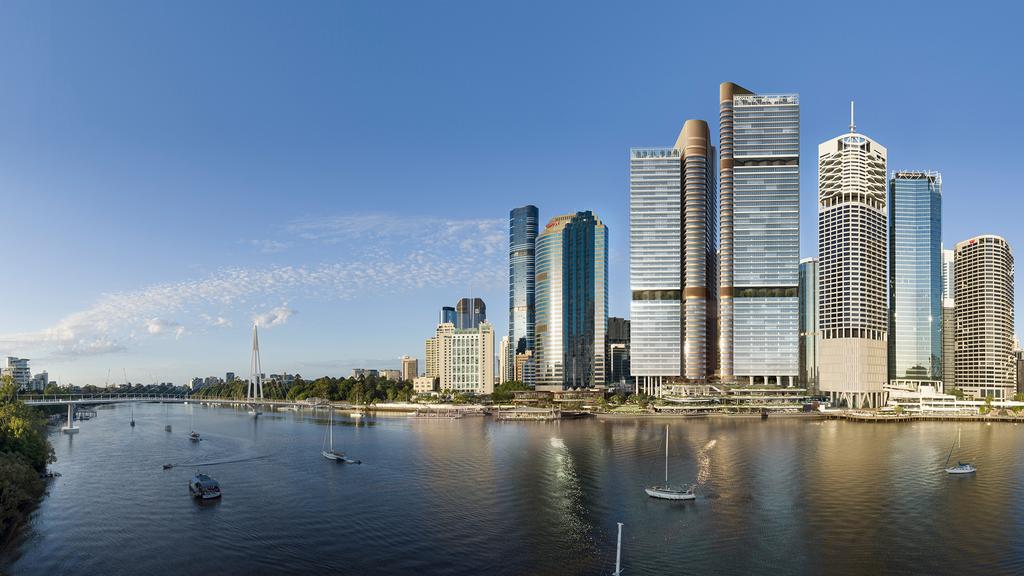
A render of the Waterfront Brisbane development. Picture: Supplied
The Dexus Real Estate Partnership 2 raised about $470m in equity commitments across its first two closes, with further equity commitments expected this financial year.
Dexus generated adjusted funds from operations, a measure of property earnings, of $251.8m, or 23.4c per security, in line with expectations. Distributions of $204.4m or 19c per security reflected a payout ratio of 81.2 per cent, in line with last year’s lower distribution policy.
Mr Du Vernet said that barring unforeseen circumstances, for the full financial year, Dexus reiterated its expectation for AFFO of about 44.5-45.5c per security and distributions of about 37c per security.
There was high occupancy across the Dexus office portfolio of 93.5 per cent and the Dexus industrial portfolio was at 95.7 per cent, with rent collections remaining strong at 99.6 per cent.
“Markets move in cycles, and we are now reaching a turning point for real asset markets. Longer-term trends remain sound, with demand underpinned by strong population growth,” Mr Du Vernet said.
Dexus shares lost 6c to close at $7.76.
Jarden analyst Lou Pirenc said that office fundamentals were showing signs of stabilisation but incentives remain elevated and he was cautious on the impact from ongoing divestments to fund the significant development commitments.
He said logistics was slowing down in terms of occupancy, negative comparable growth and rising incentives. Gearing is under control, especially against more realistic asset values but it should rise with the development pipeline over the next 18 months.

